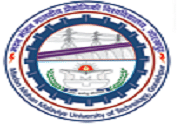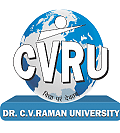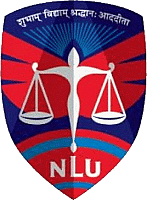Introduction about MSc in Physics
A Master of Science (MSc) in Physics from the best top university in India is a graduate-level academic program designed to provide students
with advanced knowledge and skills in various branches of physics. It offers an
in-depth exploration of theoretical and experimental aspects of physics,
preparing students for careers in academia, research, industry, and beyond.
MSc in Physics programs typically build upon the foundational knowledge
acquired during undergraduate studies and delve into more specialized and
advanced topics within the field. Students explore areas such as classical
mechanics, electromagnetism, quantum mechanics, thermodynamics, statistical
mechanics, condensed matter physics, particle physics, astrophysics, and
cosmology.
The curriculum of an MSc in Physics program often includes a combination
of core courses, elective courses, seminars, and a research component. Core
courses cover fundamental principles and theories of physics, while elective
courses allow students to specialize in areas of interest such as theoretical
physics, experimental physics, computational physics, or interdisciplinary
fields.
In addition to coursework, students may have the opportunity to engage
in independent research projects, laboratory experiments, or theoretical
investigations under the supervision of faculty members. They may also
participate in seminars, workshops, and conferences to present their research
findings, exchange ideas with peers, and stay abreast of the latest
developments in the field.
Throughout the program, students develop strong analytical,
problem-solving, and critical thinking skills, as well as proficiency in
mathematical modeling, experimental techniques, data analysis, and scientific
communication. They learn to formulate and solve complex physical problems,
design and conduct experiments, analyze and interpret experimental data, and
communicate their findings effectively through written reports, presentations,
and academic publications.
Upon completion of an MSc in Physics, graduates are well-equipped to
pursue various career paths. Many choose to continue their studies by enrolling
in doctoral programs (PhD) in physics or related fields, leading to careers as
research scientists, professors, or postdoctoral fellows in academia or
national laboratories. Others find employment in industry, government, or
non-profit organizations, where their advanced physics skills are highly valued
for roles in research and development, technology innovation, engineering, data
analysis, or science policy.
What is admission process for MSc in Physics?
The admission process at the top Master of Science (MSc) in Physics college in India program can vary
depending on the university and country. However, here is a general overview of
the typical steps involved in the admission process:
![]() Research and
Selection of Universities: Prospective students should research universities
offering MSc programs in Physics and identify those that best align with their
academic interests, career goals, and personal preferences. Factors to consider
include the university's reputation, program curriculum, faculty expertise,
research opportunities, location, and facilities.
Research and
Selection of Universities: Prospective students should research universities
offering MSc programs in Physics and identify those that best align with their
academic interests, career goals, and personal preferences. Factors to consider
include the university's reputation, program curriculum, faculty expertise,
research opportunities, location, and facilities.
![]() Review Admission
Requirements: Carefully review the admission requirements for each university and
program of interest. These requirements typically include:
Review Admission
Requirements: Carefully review the admission requirements for each university and
program of interest. These requirements typically include:
![]() Completion
of a bachelor's degree or equivalent qualification from a recognized
institution.
Completion
of a bachelor's degree or equivalent qualification from a recognized
institution.
![]() Minimum
GPA (Grade Point Average) or equivalent academic performance criteria.
Minimum
GPA (Grade Point Average) or equivalent academic performance criteria.
![]() Prerequisite
courses in physics or related subjects (if applicable).
Prerequisite
courses in physics or related subjects (if applicable).
![]() Standardized
test scores (if required), such as the GRE (Graduate Record Examination)
General Test or GRE Physics Subject Test.
Standardized
test scores (if required), such as the GRE (Graduate Record Examination)
General Test or GRE Physics Subject Test.
![]() English language
proficiency test scores (if applicable), such as TOEFL or IELTS for non-native
English speakers.
English language
proficiency test scores (if applicable), such as TOEFL or IELTS for non-native
English speakers.
![]() Submission
of application materials, including application forms, transcripts, letters of
recommendation, and a personal statement or statement of purpose outlining the
applicant's academic background, research interests, career goals, and reasons
for pursuing the MSc in Physics program.
Submission
of application materials, including application forms, transcripts, letters of
recommendation, and a personal statement or statement of purpose outlining the
applicant's academic background, research interests, career goals, and reasons
for pursuing the MSc in Physics program.
![]() Prepare Application
Materials: Gather and prepare all required application materials according to the
instructions provided by each university. This may include completing
application forms, obtaining official transcripts or academic records, securing
letters of recommendation, and writing a personal statement or statement of
purpose.
Prepare Application
Materials: Gather and prepare all required application materials according to the
instructions provided by each university. This may include completing
application forms, obtaining official transcripts or academic records, securing
letters of recommendation, and writing a personal statement or statement of
purpose.
![]() Submit Application: Submit
your completed application form and all required documents before the
application deadline. Some universities may allow online submission through
their application portals, while others may require physical copies to be
mailed.
Submit Application: Submit
your completed application form and all required documents before the
application deadline. Some universities may allow online submission through
their application portals, while others may require physical copies to be
mailed.
![]() Application Review: Once
submitted, the university's admissions committee will review your application.
They will evaluate your academic qualifications, test scores, letters of
recommendation, personal statement, research experience (if applicable), and
any other relevant factors to determine your eligibility for admission.
Application Review: Once
submitted, the university's admissions committee will review your application.
They will evaluate your academic qualifications, test scores, letters of
recommendation, personal statement, research experience (if applicable), and
any other relevant factors to determine your eligibility for admission.
![]() Interview (if
applicable): In some cases, universities may require applicants to participate in
an interview as part of the admission process. The interview allows the
admissions committee to assess the applicant's academic background, research
interests, communication skills, and suitability for the program.
Interview (if
applicable): In some cases, universities may require applicants to participate in
an interview as part of the admission process. The interview allows the
admissions committee to assess the applicant's academic background, research
interests, communication skills, and suitability for the program.
![]() Notification of
Admission Decision: After reviewing applications, the university will
notify applicants of their admission decision. This notification may come in
the form of an acceptance letter, email, or through an online portal. Accepted
students may also receive information about enrollment procedures, financial
aid, housing options, and other important details.
Notification of
Admission Decision: After reviewing applications, the university will
notify applicants of their admission decision. This notification may come in
the form of an acceptance letter, email, or through an online portal. Accepted
students may also receive information about enrollment procedures, financial
aid, housing options, and other important details.
![]() Enrollment and
Confirmation: If accepted, follow the instructions provided by the university to
confirm your enrollment by submitting any required enrollment forms and
deposits by the specified deadline. This process secures your spot in the MSc
in Physics program.
Enrollment and
Confirmation: If accepted, follow the instructions provided by the university to
confirm your enrollment by submitting any required enrollment forms and
deposits by the specified deadline. This process secures your spot in the MSc
in Physics program.
What is eligibility process for admission at MSc in
Physics?
The eligibility criteria for admission to a Master of Science (MSc) in
Physics program can vary depending on the university and country. However, here
are the typical eligibility requirements:
·
Educational Qualifications:
·
Applicants are generally required to have completed
a bachelor's degree or equivalent qualification from a recognized institution.
·
The bachelor's degree should typically be in
physics, applied physics, or a closely related field such as engineering,
mathematics, or physical sciences.
·
Some programs may require a minimum GPA (Grade
Point Average) or equivalent academic performance criterion for admission.
·
Prerequisite Courses:
·
Applicants may need to have completed specific
prerequisite courses in physics or related subjects as part of their
undergraduate education. Common prerequisite courses may include classical
mechanics, electromagnetism, quantum mechanics, thermodynamics, and
mathematical methods in physics.
·
Standardized Test Scores:
·
Some universities may require applicants to submit
scores from standardized tests such as the GRE (Graduate Record Examination)
General Test or GRE Physics Subject Test.
·
The GRE Physics Subject Test assesses an
applicant's knowledge of undergraduate-level physics.
·
English Language Proficiency:
·
For non-native English speakers, demonstrating
proficiency in the English language may be necessary.
·
Applicants may be required to submit scores from
standardized English language proficiency tests such as the TOEFL (Test of
English as a Foreign Language) or IELTS (International English Language Testing
System).
·
Letters of Recommendation:
·
Some programs may require applicants to submit
letters of recommendation from professors, supervisors, or other individuals
who can assess the applicant's academic abilities, character, and potential for
success in graduate studies.
·
Statement of Purpose:
·
Applicants may be asked to submit a statement of
purpose or personal statement outlining their academic background, research
interests, career goals, and reasons for pursuing the MSc in Physics program.
·
Interview (if applicable):
·
In some cases, universities may require applicants
to participate in an interview as part of the admission process. The interview
allows the admissions committee to assess the applicant's academic background,
research interests, communication skills, and suitability for the program.
·
It's important for prospective students to
carefully review the specific eligibility requirements of the MSc in Physics
programs they are interested in applying to, as these requirements can vary
between universities and programs. Additionally, meeting the minimum
eligibility criteria does not guarantee admission, as admission decisions may
also consider factors such as the applicant's academic background, test scores,
letters of recommendation, statement of purpose, and interview performance.
What is syllabus for MSc in Physics?
The syllabus for a Master of Science (MSc) in Physics program can vary
significantly depending on the university, the specific program, and the chosen
specialization within physics. However, here is a general overview of the
typical topics covered in an MSc Physics curriculum:
§ Core Courses:
§ Classical
Mechanics: Advanced topics in classical mechanics, including Lagrangian and
Hamiltonian mechanics, rigid body dynamics, and nonlinear dynamics.
§ Electromagnetism:
Advanced electromagnetism, including Maxwell's equations, electromagnetic
waves, electromagnetic fields in matter, and relativistic electrodynamics.
§ Quantum
Mechanics: Principles of quantum mechanics, including wave-particle duality,
Schrödinger equation, quantum states, operators, and quantum measurement.
§ Thermodynamics
and Statistical Mechanics: Concepts of thermodynamics, statistical ensembles,
Boltzmann distribution, kinetic theory of gases, and statistical mechanics of
systems.
§ Specialized Courses:
§ Quantum
Field Theory: Introduction to quantum field theory, including relativistic
quantum mechanics, scalar and gauge fields, Feynman diagrams, and quantum
electrodynamics.
§ Condensed
Matter Physics: Topics in condensed matter physics, including crystal
structure, electronic properties of solids, band theory, semiconductors,
superconductivity, and magnetism.
§ Particle
Physics: Introduction to particle physics, including standard model of particle
physics, particle interactions, elementary particles, and experimental methods
in particle physics.
§ Astrophysics
and Cosmology: Introduction to astrophysics and cosmology, including stellar
structure and evolution, galaxy formation, dark matter, dark energy, and the
Big Bang theory.
§ Nuclear
Physics: Topics in nuclear physics, including nuclear structure, nuclear
reactions, nuclear models, nuclear decay, and applications of nuclear physics.
§ Elective Courses:
§ Depending
on the university and program, students may have the opportunity to choose
elective courses based on their interests and career goals. Elective topics may
include:
§ Advanced
topics in quantum mechanics, such as quantum information theory or quantum
optics.
§ Computational
physics and numerical methods.
§ Advanced
topics in theoretical physics, such as string theory or quantum gravity.
§ Experimental
physics techniques and laboratory courses.
§ Interdisciplinary
courses in physics and related fields, such as biophysics, nanotechnology, or
materials science.
§ Seminar Courses:
§ Seminar
courses may focus on current research topics, recent advancements in physics,
or specialized areas within physics. These courses may involve student
presentations, discussions, and critical analysis of research papers.
§ Thesis or Research
Project:
§ Many MSc
Physics programs require students to complete a thesis or research project as
part of their degree requirements. This involves conducting original research
under the supervision of a faculty advisor and presenting the findings in a
written thesis or dissertation.
§ Practical Work or
Internship:
§ Some
programs may offer opportunities for practical work experience or internships,
where students apply theoretical knowledge and experimental skills to
real-world problems in industry, government, or research institutions.
§ Comprehensive
Examinations:
§ Some
programs may require students to pass comprehensive examinations covering the
core areas of physics before they can graduate.
What is scope after MSc in Physics?
The scope after completing a Master of Science (MSc) in Physics from the best university in India is diverse and offers numerous opportunities for
graduates across various industries, sectors, and fields. Here are some
potential career paths and further academic options for MSc Physics graduates:
ü Academia and
Research: Many graduates choose to pursue further education by enrolling in
doctoral programs (PhD) in physics or related fields. A PhD in physics can lead
to careers as professors, researchers, or postdoctoral fellows in academia,
where individuals conduct advanced research, publish academic papers, and teach
undergraduate and graduate-level courses.
ü Industry and
Technology: Physics graduates are highly sought after in various industries,
including technology, engineering, manufacturing, and telecommunications. They
work as research scientists, engineers, consultants, or technical specialists,
where they apply their knowledge of physics principles to develop new
technologies, design innovative products, improve processes, and solve complex
problems.
ü Information
Technology and Computer Science: Physics graduates with strong analytical and
problem-solving skills are well-suited for careers in information technology
and computer science. They work as software developers, data scientists,
machine learning engineers, and cybersecurity analysts, leveraging their
mathematical and computational expertise to develop algorithms, design systems,
and tackle computational challenges.
ü Finance and
Quantitative Analysis: Physics graduates are in demand in the financial
industry for their quantitative skills and analytical mindset. They work as
quantitative analysts, financial engineers, risk managers, or algorithmic
traders, where they develop mathematical models, analyze financial data, and
optimize investment strategies using tools from physics, mathematics, and
statistics.
ü Energy and
Environmental Science: Physics graduates play important roles in the
energy sector and environmental science, where they contribute to renewable
energy research, energy efficiency projects, climate modeling, and
environmental monitoring. They work in government agencies, research
institutions, energy companies, and environmental organizations to address
global energy challenges and sustainability issues.
ü Healthcare and
Medical Physics: Physics graduates can pursue careers in
healthcare and medical physics, where they work on medical imaging, radiation
therapy, nuclear medicine, and biomedical research. They collaborate with
healthcare professionals, physicists, engineers, and medical researchers to
develop and implement advanced technologies and techniques for diagnosing and
treating diseases.
ü Government and
Policy: Physics graduates are employed in government agencies, national
laboratories, and policy research organizations to provide expertise in areas
such as science policy, defense research, space exploration, and national
security. They contribute to policy development, strategic planning, and
decision-making processes that impact scientific research and innovation.
ü Entrepreneurship
and Innovation: Physics graduates with entrepreneurial aspirations can start their own
businesses or ventures in areas such as technology startups, research and
development consulting, scientific instrumentation, and advanced manufacturing.
They leverage their scientific knowledge, problem-solving skills, and
creativity to launch innovative products, services, and solutions that address
market needs and drive economic growth.












